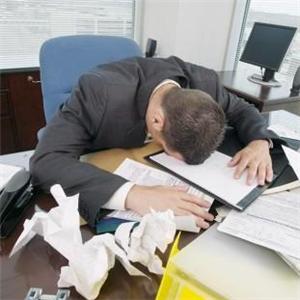 Victorian workplaces now hold witness to the job-related stress surging up with an astounding 58 compensation claims being approved for psychological injuries.
Victorian workplaces now hold witness to the job-related stress surging up with an astounding 58 compensation claims being approved for psychological injuries.
Mental disorders have, for the first time, overtaken physical injuries to become the third-leading workplace injury of the state.
The annual amount paid out for compensation was reported to have soared up by a considerable 45% to $273 million while the annual number of claims made for mental disorders has risen by nearly 470 over five years.
Complains on musculoskeletal disorders and major sprains and strains, Victoria's two biggest worker compensation categories have been reported to have either remained steady or have fallen in terms of claim numbers over the same period together with most of the other physical injuries on the list.
According to WorkCover information gathered exclusively by The Age also illustrated that the average individual compensation payout for psychologically inclined injuries have grown to an alarming $90,000 from the past financial year from only $73,000 in the years 2008 and 2009.
The mental health association beyondblue explains the abrupt rise as being brought about by work-related mental stress claims to heavier workloads, minimised stigma, and rising job insecurity. The group added that the figures are likewise being attributed to an increased recognition of the relation between the workplace setup and mental health, enumerating the series of high-profile civil lawsuits closing in on six and seven-figure payouts from respective employers who are found to be legally at fault.
Teacher Peter Doulis was awarded nearly $1.4 million in damages last month for the chronic depression that he suffered from after it was proven that he was unfairly allocated heavy workload of handling the worst-behaved students from a western suburbs school.
It is estimated that at least one in five workers have taken some time off from work for feeling mentally under the weather in the past year. In an answer to this industry organisations and health groups have encouraged employers to treat the staff’s mental health as seriously as they would their physical health and safety.
Chief Executive Kate Carnell of the Australian Chamber of Commerce and Industry expressed his concern over the rising mental health situation of Australian workers and the increasing WorkCover claims and explained that it was a serious issue that employers must give full attention on.
Ms. Carnell said that it is not merely about the high number of claims that they should be worrying about, but the much more expensive cost of stress-related claims, which can last for longer periods of time, and with employers having more difficulty getting their workers back to the workplace.
Ms. Carnell added that more and more businesses have been doing it for a long time now, with some of them even working on fewer staff than they once were. While this will mean more is being expected from these employees, it is considered okay for as long as they know what is expected of them.
Also a former beyondblue CEO, Ms. Carnell explained that the declining rate of physical injuries in the workplace across the state is attributed to more and more businesses being more diligent in the implementation of their safety policies and programs.


